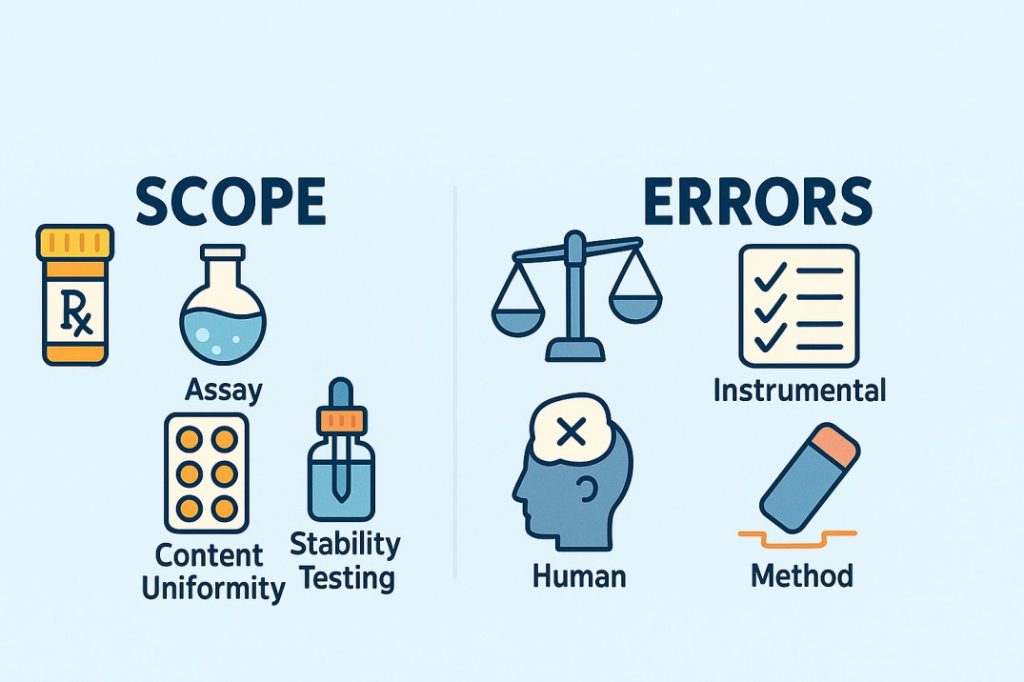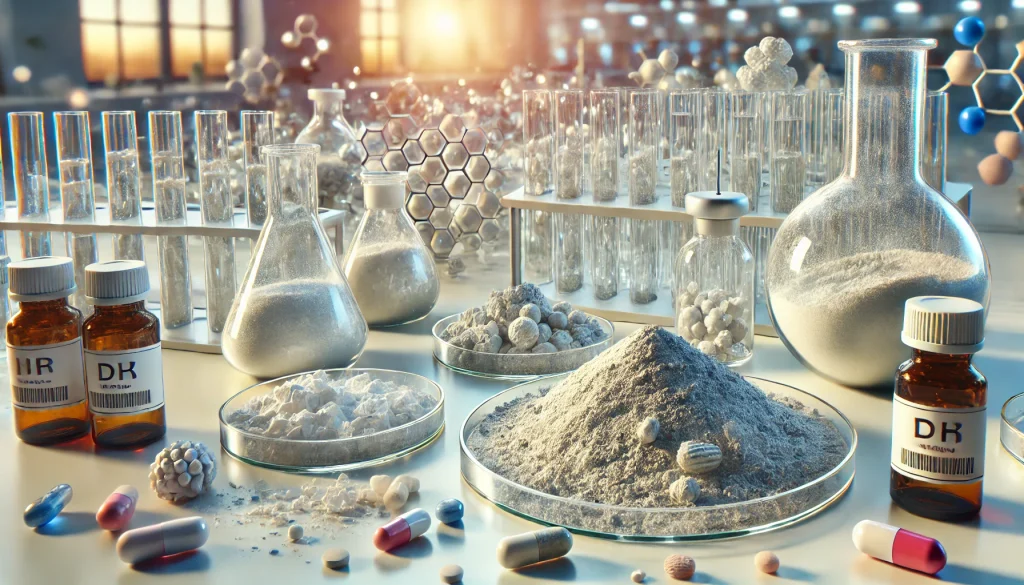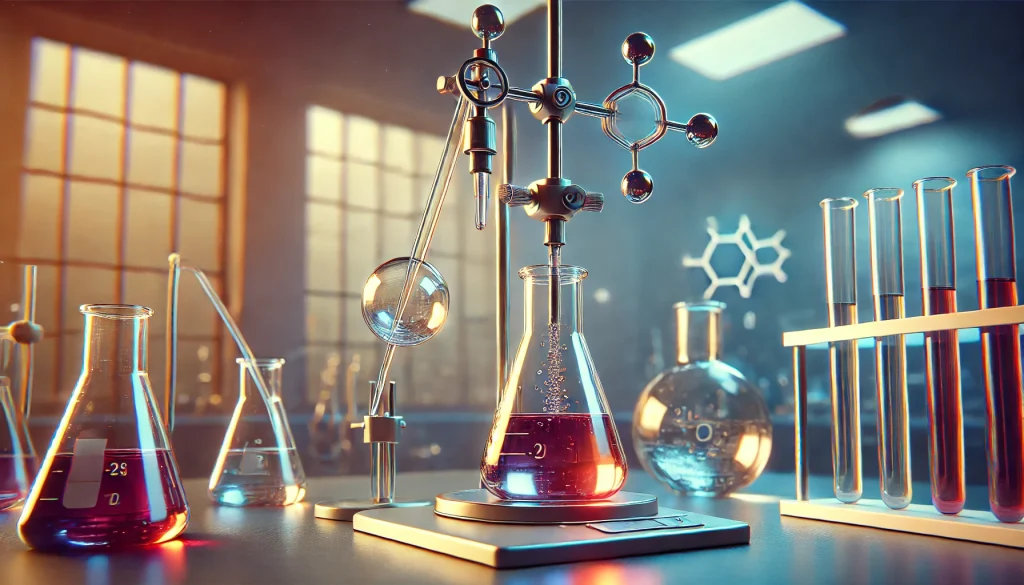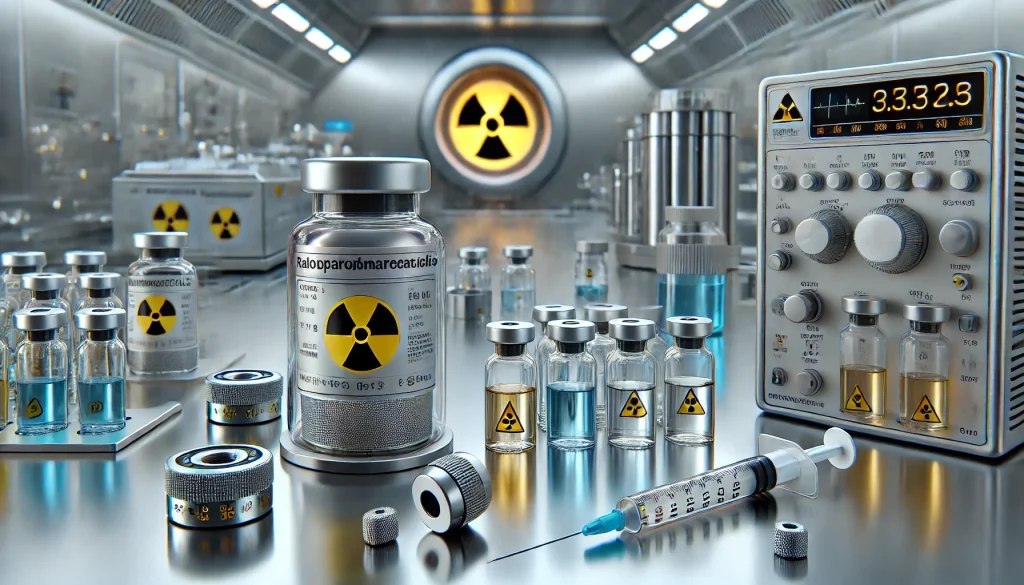Pharmaceutical Inorganic Chemistry Notes
Introduction to Pharmacopoeia: Explore the historical development and significance of pharmacopoeias in standardizing pharmaceutical substances.
Sources and Types of Impurities: Understand various origins of impurities in drugs and their classifications.
Limit Tests: Learn the principles behind limit tests for detecting impurities like chloride, sulphate, iron, arsenic, lead, and heavy metals.
Modified Limit Tests: Study the adaptations in limit tests for chloride and sulphate to enhance accuracy.
Preparation and Assay: Gain insights into general methods of preparation and assay for specific inorganic compounds.
Buffer Systems: Delve into buffer equations, capacity, and their roles in pharmaceutical formulations.
Isotonic Solutions: Understand the preparation, stability, and methods for adjusting isotonicity in solutions.
Physiological Electrolytes: Study the functions of major physiological ions and their importance in replacement therapy.
Dental Products: Explore the role of fluoride in dental care and the composition of dentifrices.
Acidifiers and Antacids: Learn about compounds like ammonium chloride and sodium bicarbonate used to manage gastric acidity.
Cathartics: Understand the use of agents like magnesium sulphate in promoting bowel movements.
Antimicrobials: Explore the mechanisms and classifications of agents such as potassium permanganate and boric acid.
Expectorants and Emetics: Study compounds like potassium iodide and copper sulphate used in respiratory and emetic therapies.
Haematinics: Understand the role of iron-containing compounds in treating anemia.
Antidotes and Astringents: Learn about agents like sodium thiosulphate and zinc sulphate used in poisoning and as astringents.
Unit 5: Radiopharmaceuticals and Their Applications
Radioactivity Basics: Understand the principles of radioactivity, including types of radiation and half-life concepts.
Radiopharmaceuticals: Explore the use of isotopes like Sodium Iodide I-131 in medical applications.
Safety and Storage: Learn about the precautions and storage conditions necessary for handling radioactive substances.
Other Subjects & Units of B Pharmacy 1st Semester

Why Choose Our Pharmaceutical Inorganic Chemistry Notes?
- Structured Content: Each unit is organized for clarity and ease of understanding.
- Exam-Oriented: Focuses on key topics essential for academic and competitive exams.
- Accessible Resources: Includes external links to authoritative sources for expanded learning.
- Comprehensive Coverage: Addresses all units as per the latest syllabus guidelines.Mohanlal Sukhadia University+5ResearchGate+5pci.nic.in+5
In conclusion, these Pharmaceutical Inorganic Chemistry notes are designed to provide a solid foundation for your studies. By integrating concise summaries with external resources, you can enhance your understanding and perform confidently in your examinations.
Thank you for reading from Firsthope's notes, don't forget to check YouTube videos!






